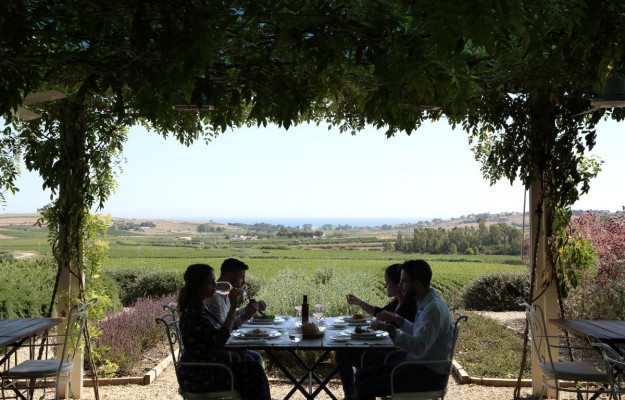The deadline of the new law, decree number 105, approved on July 23rd, is forthcoming. The decree will restrict access to many indoor and outdoor activities - museums, concerts, football matches, restaurants - unless one shows the Green Pass that certifies a person has been vaccinated (at least the first dose), has not contracted Covid-19 in the previous six months or has a negative swab test within 48 hours, and will be a real obstacle course for the wine world. As WineNews reported a few days ago, it is not so much, and not only, because of the numerous cancellations companies have received, with peaks of 30% of visits and tastings in the wineries canceled, but also because exhibiting the Green Pass upon entering is a far from a simple procedure. While exhibiting the Green Pass is adequate for Italian wine tourists, those coming from abroad may encounter even more obstacles, which inevitably will add to an already complex situation. As the lawyer Marco Giuri, at the helm of Studio Giuri in Florence, one of Italy's leading experts in wine and catering legislation, told WineNews, “there is a lot of confusion, even in the Ministry of Health. The distinction should be made between EU countries and non-EU countries”.
Tourists arriving from a European Union country, “with the European Green Pass, through the QR Code, should not have any problems. The problem arises when the tourist arrives without a QR Code, or in the case that the Italian system is unable to read it. The law says that it is adequate to show the paper instead, and so far, this is acceptable. However, there is a purely linguistic issue, which is, a document drawn up by the health authority of a country like Finland or the Netherlands, for instance, needs to be translated into one of the languages the European Union officially recognizes, that is English, French or Spanish. There is”, explained Marco Giuri, “an official circular letter (number 34414 dated July 30, 2021), published by the Ministry of Health, which states that the vaccination certification must be in Italian, or in English, or in French or in Spanish. If it is not in one of these languages, a sworn, therefore certified, translation is obligatory, upon departure or arrival, which certifies the contents of the Green Pass, and consequently the personal data, vaccination type, date of vaccination and identification data of the person who issued the certificate. There is another absurd thing, which is that if a person has recovered from Covid-19, a sworn translation is absolutely necessary regardless, even if there is digital documentation”.
However, as we mentioned, uncertainty still reigns, as “we need to understand whether this rule, in the circular letter from the Ministry of Health, is to be applied only to non-EU countries - USA, Japan, Australia, Canada - or to all foreign countries. To date, it seems to apply to all foreign countries, but even if this were not the case, in the event that, in reference to the example above, a Finnish tourist arrives without a QR Code, or one that does not work, either we trust the document, or it will be very difficult to untie the knot. In this context, then, it will be impossible for Russians to enter Italy, unless they have a swab, because the Sputnik vaccine is not among those recognized by EMA, which instead includes Comirnaty (Pfizer-BioNtech), Spikevax ( Moderna), Vaxzevria (AstraZeneca) and Janssen (Johnson & Johnson). Obviously, there is the possibility that the Russian tourist has been cured of the virus and in that case a sworn translation of the documentation will be needed. A common ideogram on the document would have been useful, at least at the EU level, to validate the Covid-19 documentation throughout the European Union, even without a QR Code. The last important issue”, concluded the Florentine lawyer, “is the cancellations of tourists who have already booked and paid, as there is a risk of disputes, and although the average price of a visit is not very high, it could turn out be another problem that the wine companies will have to manage. There is definitely a lot of confusion, and the problem is wide reaching, from restaurants, hotels, swimming pools, wineries, theaters and museums. We hope that something changes before August 6th, but it will not be simple for the world of tourism”.
Copyright © 2000/2026
Contatti: info@winenews.it
Seguici anche su Twitter: @WineNewsIt
Seguici anche su Facebook: @winenewsit
Questo articolo è tratto dall'archivio di WineNews - Tutti i diritti riservati - Copyright © 2000/2026







































































































































































































